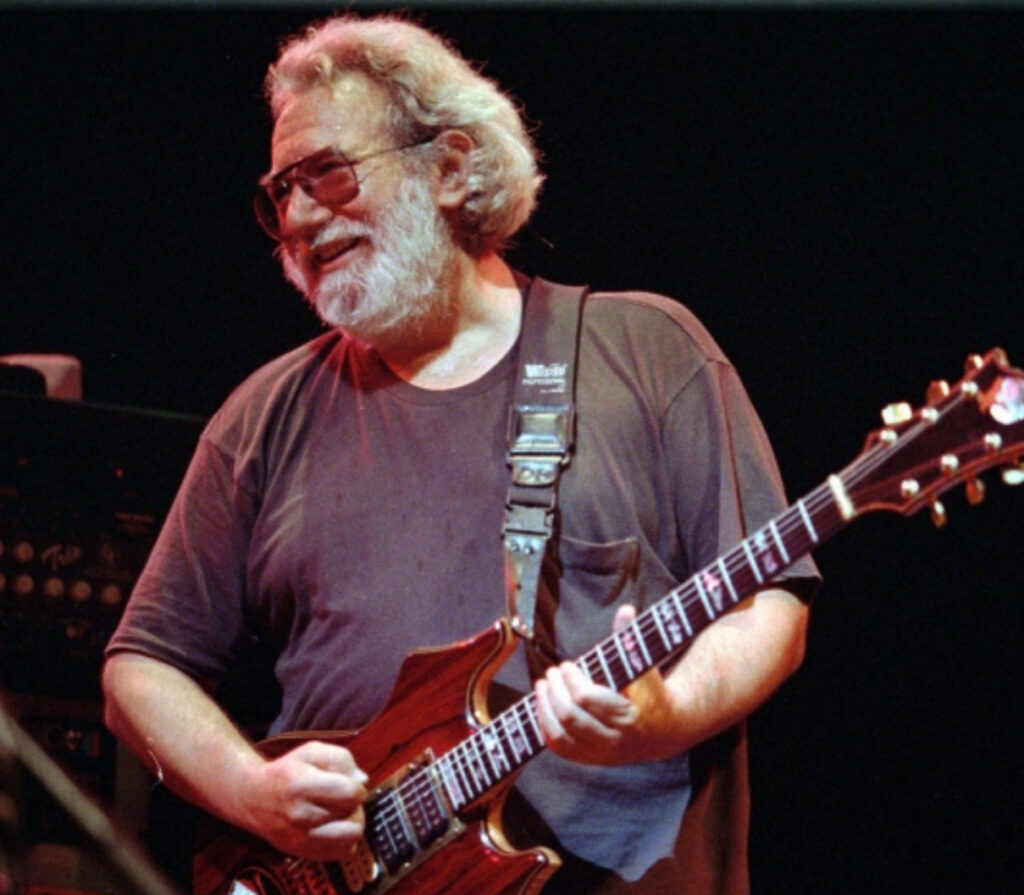Jerry Garcia, the legendary guitarist and spiritual leader of the Grateful Dead, occupies a unique place in music history. Known for his improvisational brilliance, countercultural ethos, and influence on the jam band scene, Garcia’s contributions to rock and roll are undeniable. Yet, in 1994, when the Grateful Dead were inducted into the Rock and Roll Hall of Fame, Garcia notably rejected the honor, declining to attend the ceremony.
This decision puzzled some fans and critics while others saw it as emblematic of Garcia’s ethos and the Grateful Dead’s countercultural stance. To understand why Jerry Garcia rejected the Rock and Roll Hall of Fame, one must explore his personal philosophy, the ethos of the Grateful Dead, and the broader cultural implications of the Hall of Fame itself.
The Grateful Dead and the Rock and Roll Hall of Fame
The Grateful Dead, formed in 1965, were synonymous with the 1960s counterculture movement. Known for their extended improvisational performances, eclectic influences, and dedicated fanbase (the Deadheads), the band redefined what a rock band could be.
By the time they were inducted into the Rock and Roll Hall of Fame in 1994, the Grateful Dead were already cultural icons. The Hall of Fame recognized their influence on music, their innovative approach to live performance, and their enduring legacy. However, Jerry Garcia’s absence at the ceremony spoke volumes about his feelings toward institutional recognition and the Hall of Fame itself.
Jerry Garcia’s Philosophy on Music and Recognition
Garcia viewed music as a deeply personal and collective experience, not something that could be quantified or judged by institutions. He often spoke of the Grateful Dead as a living organism, constantly evolving with the contributions of its members and its audience.
•For Garcia, the band’s connection with their fans and the joy of performing live were far more significant than industry accolades.
•He once said, “I don’t think of us as a successful band; I think of us as an ongoing experiment.” This perspective highlighted his focus on the process of creation rather than external validation.
Resistance to Commercialization
Garcia and the Grateful Dead resisted the commercialization of their music. They famously allowed fans to tape their concerts, fostering a unique relationship between the band and their audience. This anti-commercial stance clashed with the Hall of Fame’s image as a formal institution that commodifies musical achievements.
•Garcia may have seen the Hall of Fame as an extension of the music industry machinery he had spent his career avoiding.
•By rejecting the Hall of Fame, he reaffirmed his commitment to authenticity and independence.
Discomfort with Celebrity Status
Garcia often expressed discomfort with his fame, preferring to focus on his art rather than his image. The Hall of Fame’s ceremony, with its pomp and media attention, likely felt at odds with his low-key personality and aversion to the spotlight.
The Grateful Dead’s Countercultural Ethos
Anti-Establishment Roots
The Grateful Dead emerged from San Francisco’s Haight-Ashbury scene in the 1960s, a time and place defined by anti-establishment ideals. Their music and lifestyle embodied a rejection of mainstream values, including materialism and institutional authority.
•The Rock and Roll Hall of Fame, with its corporate sponsors and ties to the music industry, may have felt antithetical to the Dead’s countercultural roots.
•Garcia’s decision to skip the ceremony can be seen as a continuation of this ethos, refusing to conform to industry norms.
Focus on Community and Collaboration
The Grateful Dead prioritized community over individual achievement. Their live performances were collaborative events, with no fixed setlists and an emphasis on improvisation.
•Garcia may have felt that the Hall of Fame’s focus on individual or band recognition overlooked the collective nature of the Grateful Dead’s music.
•His absence at the ceremony could be interpreted as a statement that the band’s legacy belonged to the fans as much as to its members.
Criticism of the Rock and Roll Hall of Fame
Commercialization of Art
The Rock and Roll Hall of Fame has faced criticism for prioritizing commercial success over artistic integrity. Critics argue that the institution often favors mainstream acts over experimental or underground artists, perpetuating a narrow definition of rock and roll.
•Garcia, known for his avant-garde approach to music, may have viewed the Hall of Fame as an institution that contradicted his artistic values.
•By rejecting the honor, he distanced himself from an institution he may have seen as emblematic of the commercialization of art.
Lack of Inclusivity
The Hall of Fame has also been criticized for its lack of inclusivity, particularly its historical underrepresentation of women, people of color, and non-mainstream genres.
•While this may not have been a direct reason for Garcia’s rejection, his decision aligns with broader critiques of the institution’s limitations.
Fan Reactions and Legacy
Garcia’s decision to skip the Rock and Roll Hall of Fame ceremony sparked mixed reactions among fans and critics.
•Supporters: Many fans applauded Garcia’s stance, seeing it as consistent with the Grateful Dead’s countercultural values. They appreciated his refusal to conform to industry norms and his focus on authenticity.
•Critics: Others felt that Garcia’s absence was disrespectful to the other members of the Grateful Dead and the fans who saw the induction as a milestone in the band’s history.
Despite the controversy, Garcia’s decision has become part of his legacy, highlighting his commitment to his principles and his reluctance to be defined by external recognition.
The Rock and Roll Hall of Fame and Its Role in Music History
While Jerry Garcia rejected the Hall of Fame, it continues to play a significant role in shaping the narrative of rock and roll history.
Celebrating Legacy
The Hall of Fame serves as a platform to celebrate the achievements of influential artists and preserve their legacies for future generations.
Critiques and Evolution
Despite its importance, the Hall of Fame has faced ongoing criticism for its selection process and perceived biases. Efforts have been made in recent years to address these issues and expand the scope of inductees to reflect the diversity of rock and roll.
Impression
Jerry Garcia’s decision to reject the Rock and Roll Hall of Fame was a deeply personal and symbolic act. It reflected his philosophy on music, his discomfort with institutional recognition, and the Grateful Dead’s countercultural roots. While his absence from the ceremony sparked debate, it also reinforced his legacy as an artist committed to authenticity and independence.
In the end, Garcia’s rejection of the Hall of Fame serves as a reminder that true artistry cannot be confined to awards or institutions. His music, and the Grateful Dead’s enduring influence, continues to inspire generations, transcending the need for formal recognition.
No comments yet.








